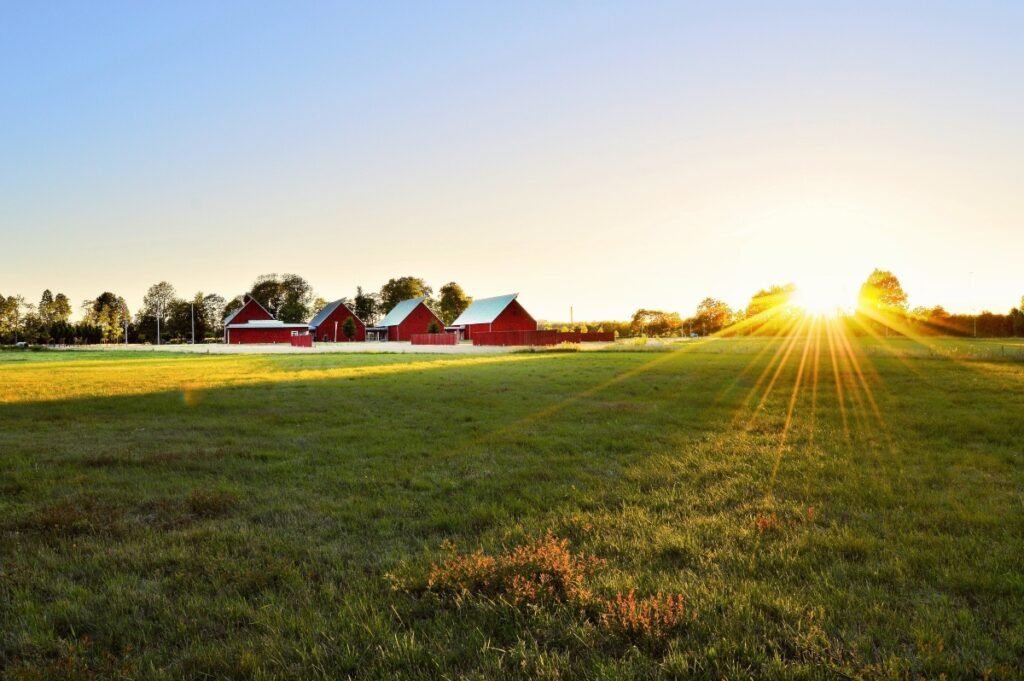The image source is Pexels.
You may love to spend your free time tending crops and livestock, but farming as a business? Well, that’s a different story. The saying goes that the road to hell is paved with good intentions. It’s not easy balancing personal passions with profit and loss statements. The risks of starting a farm business are high. Establishing a profitable venture takes dedication, hard work, and plenty of sleepless nights.
However, it can be worth all the effort if your love of agriculture is more than just a hobby. Many challenges—and rewards—are associated with raising animals and growing crops for profit rather than personal consumption alone. So how can you protect your family farm business from the elements? Let’s take a look at some helpful tips for protecting your family farming business from risk factors as you take on this new career path:
1. Conduct Due Diligence During the Growing Season
You can’t fully protect your crops from nature’s whims, but you can take some steps to reduce crop-related risks. Familiarize yourself with the growing conditions of the crops you intend to grow. Each plant type will have its unique set of risks and requirements for optimal growth. Additionally, each harvest season has its own set of risks.
For example, if you intend to grow corn, you’ll want to ensure you’re planting during the appropriate season. Ensure that the growing conditions are optimal for your crop. Optimal growing conditions will help protect your crops from pests and diseases and lessen the likelihood that adverse weather conditions will damage your crops.
2. Protect Your Equipment
Farm equipment can be expensive, but it’s also essential to the success of a farming business. That said, you won’t be able to enjoy costly equipment if it gets damaged or destroyed. Look for ways to protect your equipment from the elements. You can get a heavy duty vinyl tarp to ensure your equipment is always safe. If your equipment will be in use during wet seasons, ensure you have appropriate storage for it when it’s not in use.
Protect your equipment from damage by keeping it covered to protect it from dust and debris. Pay special attention to moving parts, as these are most likely to come into contact with harmful particles. Make sure moving parts are clean and lubricate them occasionally. Protect your equipment from sudden temperature changes. Cold and hot weather can cause it to crack and break down over time. Keep your equipment in a clean, dry space when it’s not in use.
3. Protect Your Crops
It’s important to remember that even if your crops survive the growing season and look like they’ll be successful, they can still feed pests. If you notice a problem, take action as soon as possible. Most crop-eating insects can get handled with natural remedies. Try using organic pesticides, insect traps, and other deterrents.
Start with a thorough pest-management plan to keep the bad bugs away while allowing the helpful bugs to thrive. Pests can lower yields and affect quality, which can seriously affect your bottom line.
4. After Harvest: Protect Your Field From Rot With Biochar
Whether your farm deals with livestock or crops, you’ll likely have to deal with a portion of your crops rotting in the field after harvest. While you can’t control the weather, there are ways to protect your crop from rotting while it’s still in the field. Protect your crops from rotting by applying biochar to your soil before planting. Why? Biochar is porous, allowing air and water to flow throughout the soil.
It also has antimicrobial properties that can inhibit microbial growth and protect your soil from pathogens. Biochar can be added to the soil before planting or after harvesting. Either way, it will continue to protect your crops from rotting and improve the overall quality of your soil.
Conclusion for Protecting Your Family Farming Business
Choosing to become a farmer is not an easy decision. Success takes passion, determination, and plenty of hard work. However, if you love agriculture and have the proper knowledge and equipment, you can succeed at farming and make a successful business. These tips will help protect your crops and equipment from the elements and reduce your risk of infection.
